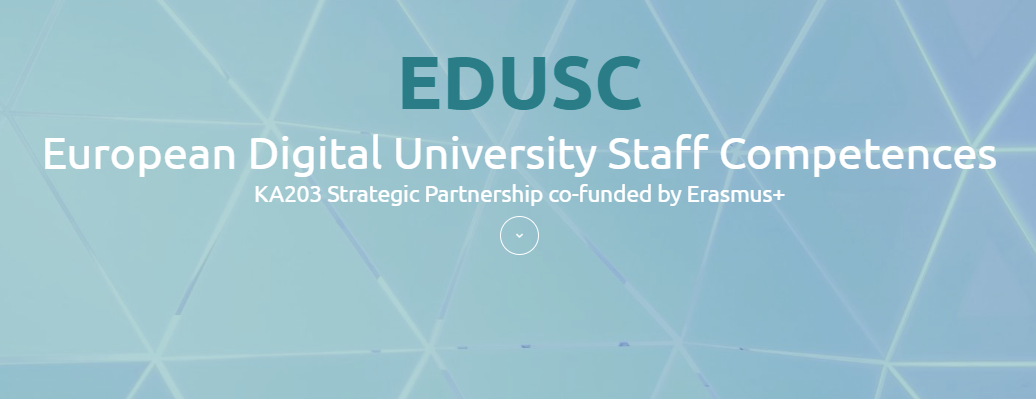The Erasmus+ KA2 project European Digital University Staff Competencies (EDUSC) aims to support and accelerate digitalisation in higher education. By training staff members in digital competencies, through a modern and digital teaching methodology, staff members are encouraged to become digital internationalisation stewards and join a community of ambassadors for digital transformation that will ultimately benefit the whole sector. In the context of this project, a first staff training activity on Technologies for High Quality Teaching will be organised on 27, 28 and 29 June 2022 at University Carlos III of Madrid!
| What will the training be about? There are currently numerous learning theories and methodologies that teachers can use for their courses, depending on their educational goals and the specific subject taught. In addition, there are numerous technologies and tools that can help in the implementation of these learning theories and methodologies. Bloom’s taxonomy of the cognitive domain refers to the competences of learners from “basic remembering” to “advanced creation”. The staff training activity relates this taxonomy to six proficiency levels (A1, A2, B1, B2, C1, C2) by using the analogy of the pyramid. An additional pyramid serves to organise different instructional designs that the teacher can use in the classroom, with and without technology. By advancing in the six proficiency levels, the teacher moves from designing a course for remembering through lecturing (teacher-centered education and passive learning) to designing for creation and getting the student to work on real projects (student-centered education and active learning). The teacher also shifts from being a lecturer to a facilitator, becoming finally a coach for the learner as the teacher reaches the highest proficiency level. What will you learn at this training? >>> Knowledge on different educational methodologies that can be applied to teaching, as well as the purpose of each one of them. >>> Knowledge on different educational technologies and tools that can support the implementation of different educational methodologies. >>> Knowledge on different educational scenarios in which the above-mentioned methodologies and technologies can be used and the relationship of these scenarios with the levels of Bloom’s taxonomy and the European framework of digital competences of teachers. Who is this training directed to? Any university professor interested in improving their teaching practice by using technologies and tools to support different educational methodologies. |


